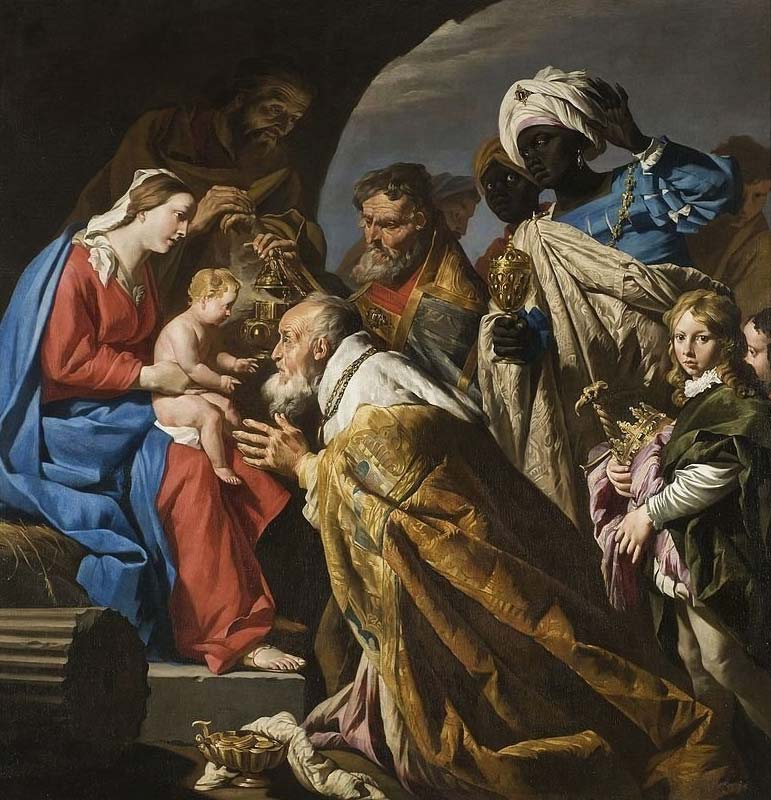Adoration of the Magi by Matthias Stom
At the risk of sounding too modest, much can be said for the Christian faith. Among other things, you don’t have to check your brains at the door to be a Christian. You don’t have to whitewash any of the misery and hardships that are so much part of the human experience. You don’t have to deny that people of faith live in a world that is always more or less inhospitable to that faith. Christianity makes room for all of that, including trying to live with this seemingly endless pandemic. I want to say this is the source of its power.
I do think this comes through in this arresting story of the Magi. The story attracts on many different levels, but there is nothing at all sentimental about it, just as being born in a stable because there was no room in the inn has nothing sentimental about it. The Magi possess a quality that is necessary for anyone who desires to live his or her life with integrity. They are serious about the truth. However learned they may be in the science of their day, they are humble enough to follow the truth wherever it leads them. And once found, they submit their whole being to it. These three kings prostrate themselves before a child, a baby. Their gifts of gold, frankincense and myrrh are but a symbol of the surrender of themselves to the real King of the Universe. Finding the truth leads them to adoration, and adoration is the perfect response to the gift of faith.
The brightness of the Magi’s character and the integrity of their search for the truth shines forth all the more powerfully when contrasted to Herod, who is all pretense and whose maneuverings offer us a clear picture of another attitude toward the truth. Herod, the petty king, even though he gives tacit acknowledgement to the coming of Christ, is incapable of being stirred by the truth, of looking up to a star, because he is too busy protecting himself and his petty rule. We know that the denial of the truth and his deliberate blinding himself to it will lead him to terrible fits of rage. For all the threat and the danger he presents, he is, in the end, a pitiful character.
Let me offer a couple of thoughts related to these two conflicting attitudes toward the truth. None of us, I am supposing, identifies himself with Herod and his murderous rage. But isn’t it true that we suffer from our own compromises with the truth? Whenever we cut corners, take the path of least resistance, settle for comfort and complacency over the high demands of our Christian vocation, we pay a price. In the words of one of our Christmas readings, our Christian vocation calls us to live chastely and soberly and devoutly in this world. Chastely, soberly, and devoutly: that’s a tall order in our highly secularized and highly sexualized culture. But this is the way that we bow low before the real King and submit our whole being to him. This is the way we witness to the fact that He really is the Lord of our life.
My other thought is this. Life is hard. The darkness around us, and within us, is real. Christmas does not take this away. The light of the Incarnation does not obliterate the darkness. But God’s coming to us does shine through the darkness of the world and the darkness of our hearts to open up pathways of hope. This is the treasure to which the Magi were led, the tender mercies of a God whose love is eternal and ever fruitful. Come, let us adore Him.
